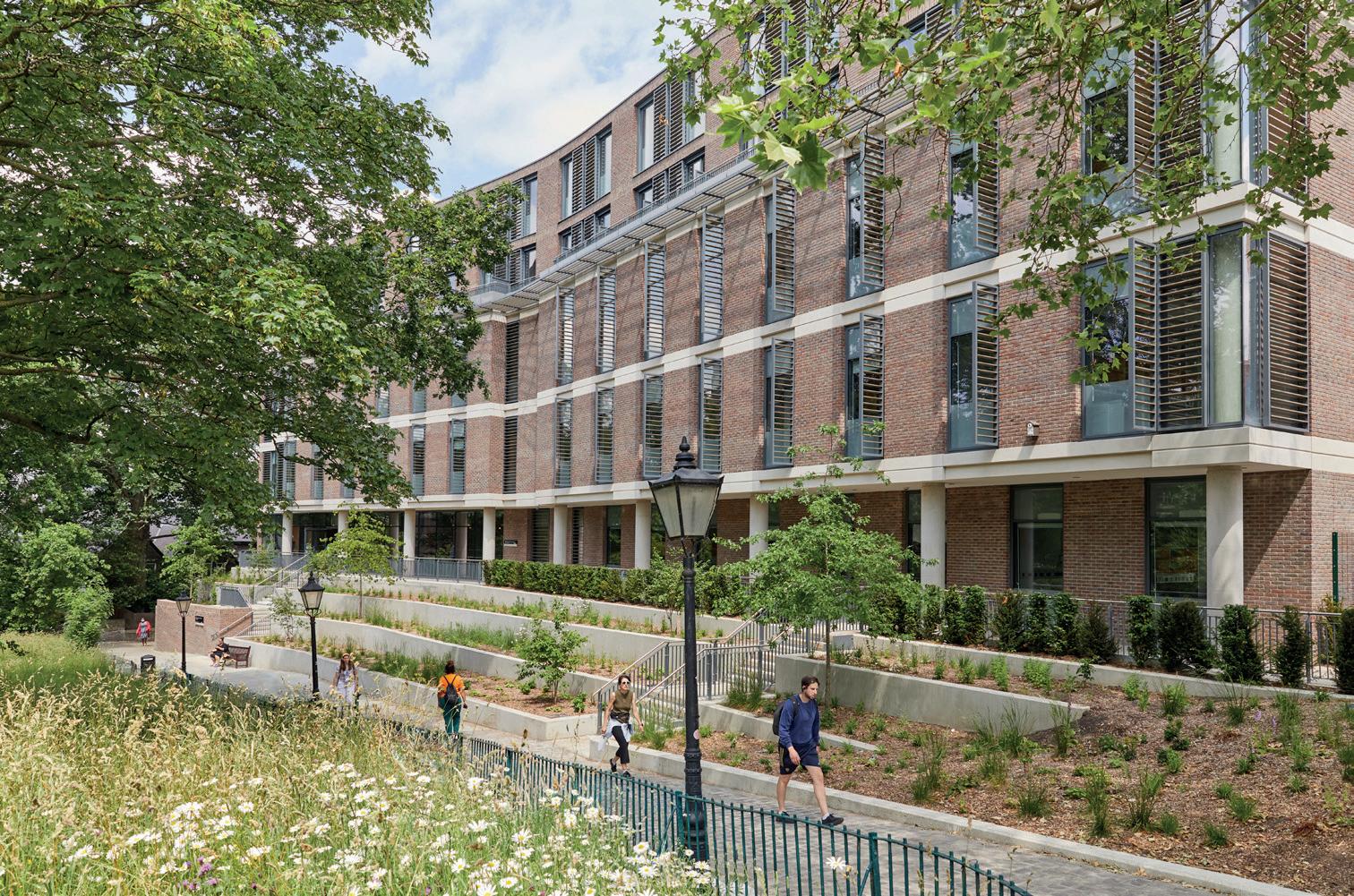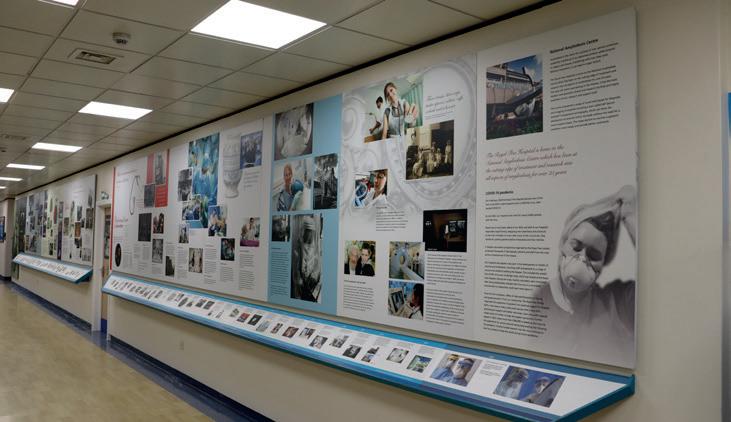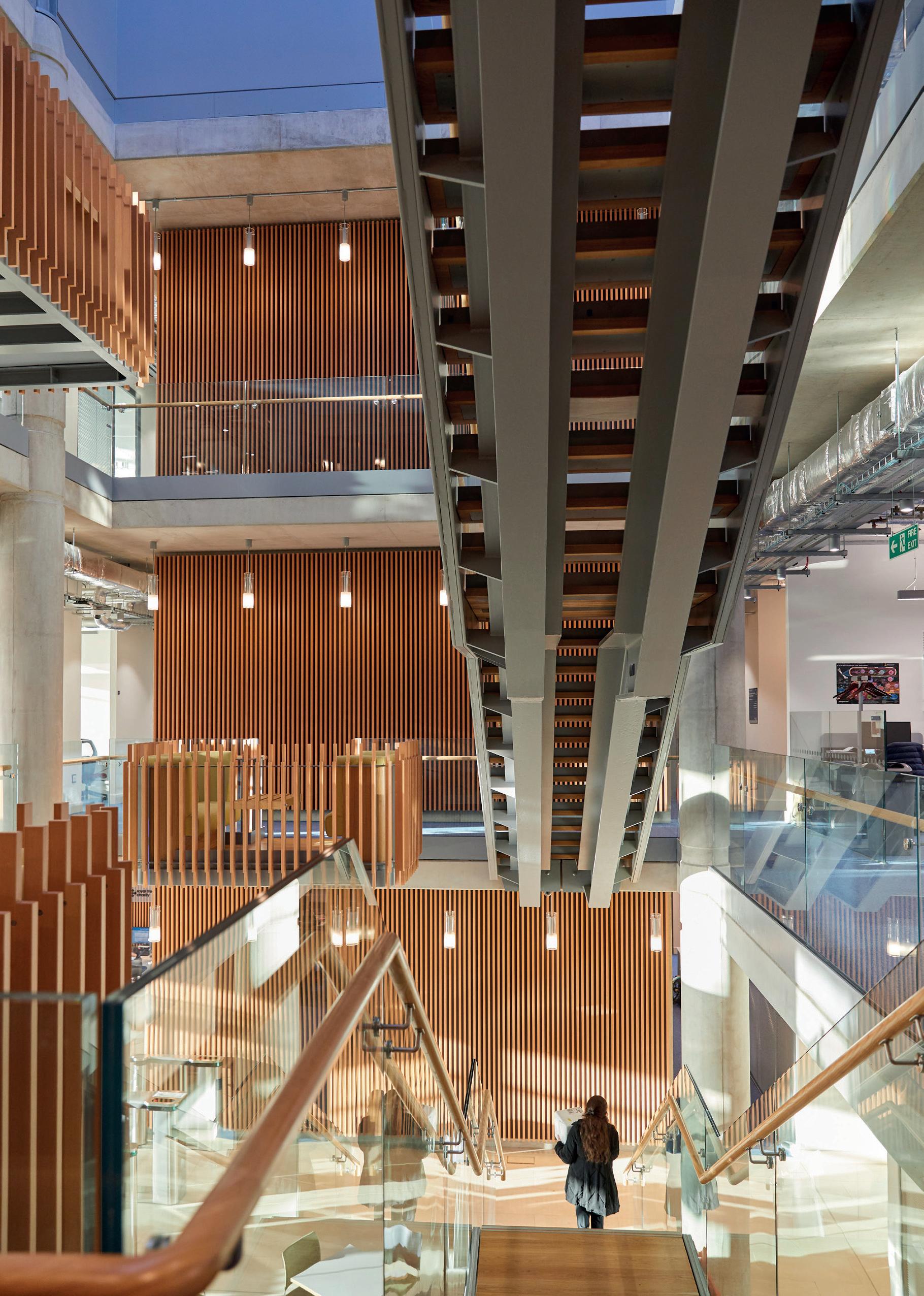Welcome!
Welcome to issue 2 of an occasional newsletter to update you with news and events at the Pears Building, the new home of the UCL Institute of Immunity and Transplantation (IIT) next to the Royal Free Hospital in Pond Street.

We want this newsletter to be as useful and interesting as possible, so please let us know what you think of it and what you’d like to see in future issues, at communications@ royalfreecharity.org. If you receive only an email version, you can also request a physical copy.
Research uncovered
We were delighted to again welcome members of our very local community to come and hear more about the scientific research at the Pears Building, in the second of our neighbourhood events. It included the chance to see our new sculpture and sample the wonderfully authentic Italian food served in Mileto Caffe, just inside the main entrance. Mileto, just at the top of the main staircase opposite the meadow, is open to all.
Professor Hans Stauss, director of the IIT, which is now in the Pears Building, said that public access to the building was key. “It was important to me that it was a building for everybody” –the public, patients who use its accommodation and scientists who work on its globallyimportant research into the human immune system.
Prof Stauss explained key aspects of the institute’s research into disorders of the immune system which affect patients, leaving them vulnerable to infections, including coronavirus, auto immune diseases and inherited disorders. A key treatment his teams were working on was

immunotherapy, involving inserting additional genetic code into immune cells, enabling them to fight cancer.
The treatment is already used to treat blood cancers; the challenge now was to show how it could tackle tumours in organs such as the kidneys and liver. Another major area of research was into why the body sometimes attacks normal cells, such as insulin cells, causing type 1 diabetes.
The latest work on this was described by Professor Lucy Walker, who is leading the IIT’s work to find a cure for type 1 diabetes. The most common metabolic disease in children and also suffered by adults, the current 8.4 million people living with the disease was expected to increase to 13 -17 million by 2040, she said.
Patients’ immune systems, which normally defend the body from infection or cancer, instead attack and destroy insulin cells in the pancreas. The treatment for the past 100 years had been to replace the insulin by injection. Before that, the disease was fatal, often within months of diagnosis.
However, there were still major challenges for those living with the disease. Research aimed to find out why the diseased body behaved as it did, so that it can be prevented. Some success had been achieved with immunotherapy, although Prof Walker’s team had found that as well as destroying “bad” immune cells, treatment also killed protective immune cells. Further work was underway to improve the effectiveness of immunotherapy and also to establish who was most at risk of developing the disease and which treatments best suited which patients.
The reality of living with type 1 diabetes was described by a patient, Kirsty, in conversation with Dr Sarah Ali, her Royal Free Hospital diabetes consultant. Kirsty has been living with type 1 diabetes since she was diagnosed in 2005 at the age of nine. As a child she hadn’t fully understood the implications until she was a teenager, when she realised: “I’m the one who is in charge of this. I have to look after this now.”

She explained that a continuous glucose monitoring sensor, worn on her arm, meant she no longer needed to do finger prick testing. But continual vigilance was still necessary, starting with checking her blood sugar levels throughout the day, to decide when and how much insulin to use. This could be based on her meals, exercise, hormone levels, stress and even the weather.
Dr Ali said that on average patients with type 1 diabetes had to make around 180 more decisions each day than people without diabetes.
Kirsty, left, talking to Dr Sarah AliThe event was the first chance that many local people had to see a sculpture, Synthesis (heavy chain), now suspended over the café area.

Its creator, David Rickard, explained that it had been inspired by the vast community that was our immune system.
Many calculations had been involved in planning the work in order to ensure that it accurately represented this highly complex, interconnected system.
Visitors to the event also had the chance to sample food and drink from our new authentic Italian café, Mileto Caffé, in the main reception area of the Pears Building.
Mileto is run by Federica Federico, who learned her trade in Rome, in her family’s café, after which her new venture is named. Federica uses speciality coffee, sourced ethically from her network of suppliers around the world.

This one’s on us!
Free coffee token
Pick up a free tea or coffee when you present this voucher at Mileto Caffé in the Pears

Building reception area.
She serves a range of teas and has created a range of delicious Italian-themed food offerings to eat in the café or take away.
The café, which supports the work of the Royal Free Charity, is open from 7am6pm, Monday to Friday and 9am to 4pm on Saturdays. Everyone is welcome.






